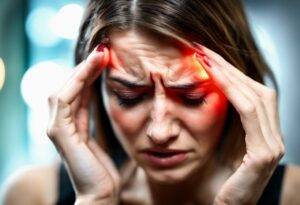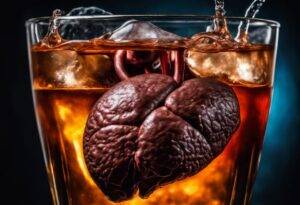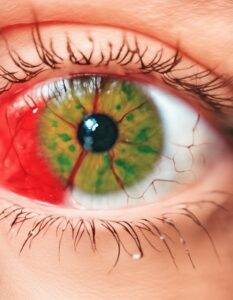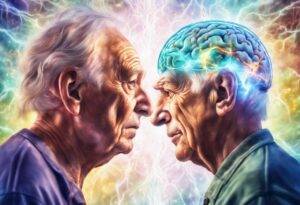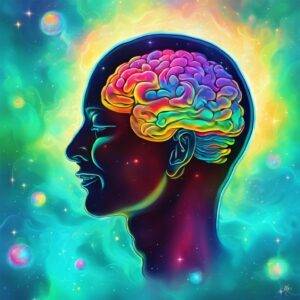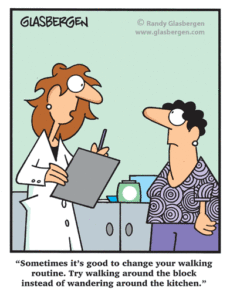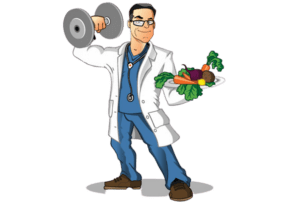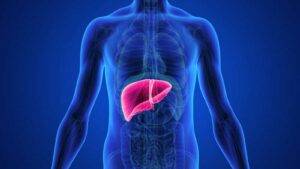In this post, we will explore common questions and concerns about recreational drug use. We’ll provide comprehensive information backed by studies, statistics, and expert opinions to address each topic and educate readers on the impact of recreational drug use on the body and overall health.
The Impact of Recreational Drugs on Health: What You Need to Know
Just a little heads up: some of the links on this site may be affiliate links, which means if you make a purchase through them, we might get a little kickback. But don’t worry, it won’t cost you a cent extra! Think of it as the universe secretly thanking us for helping you find a great deal. Your support keeps the good vibes flowing.
1. The differences between recreational drugs and prescription medications:
Recreational drugs are substances intentionally used to alter one’s mental state for pleasure or recreational purposes. They are distinct from prescription medications, which are prescribed by healthcare professionals to treat specific medical conditions and must be used according to their instructions.
2. How recreational drugs affect the brain and its functions:
Recreational drugs exert their effects by interacting with the brain’s neurotransmitters, altering their release or reuptake. These alterations can impact various brain functions such as mood regulation, memory, and decision-making.
3. The most addictive recreational drugs:
According to the National Survey on Drug Use and Health, heroin, cocaine, and methamphetamine are among the most addictive recreational drugs, leading to dependence and addiction within a short period.
4. Long-term changes in brain structure resulting from recreational drug use:
Studies have shown that long-term recreational drug use can lead to structural changes in the brain, affecting regions involved in reward pathways, decision-making, and impulse control. The brain’s plasticity allows it to adapt and potentially recover to some extent with abstinence from drug use.
5. The effects of different recreational drugs on sleep patterns and overall sleep quality:
Recreational drug use can disrupt sleep patterns, causing insomnia, fragmented sleep, or excessive daytime sleepiness. Substances like stimulants, such as cocaine and methamphetamine, can interfere with the normal sleep-wake cycle.
6. Short-term effects of recreational drug use on the cardiovascular system:
Recreational drug use can significantly impact the cardiovascular system. Stimulants like cocaine and amphetamines can raise blood pressure, increase heart rate, and constrict blood vessels. Conversely, depressants like opioids can slow heart rate and breathing.
7. The risk of heart attacks or strokes associated with recreational drug use:
Certain recreational drugs, including cocaine and methamphetamine, can increase the risk of heart attacks and strokes due to their effects on blood pressure, heart rate, and blood vessels. It is crucial to be aware of these risks.
8. Potential effects of recreational drugs on fertility and sexual health:
Research suggests that recreational drug use, such as marijuana and cocaine, can disrupt hormone levels, leading to impaired fertility and sexual dysfunction in both men and women.
9. The possibility of hormonal imbalances caused by recreational drug use:
Recreational drug use can disrupt the delicate balance of hormones in the body. For example, anabolic steroids can lead to hormonal imbalances and long-term health consequences.
10. How recreational drugs impact the immune system’s ability to fight infections:
Recreational drugs, particularly stimulants and opioids, can suppress the immune system, making individuals more susceptible to infections and illnesses. Additionally, injecting drugs can introduce the risk of contracting blood-borne infections like HIV and Hepatitis C.
11. The long-term alteration of a person’s personality or temperament resulting from drug use:
Long-term recreational drug use can lead to changes in a person’s personality or temperament. For example, chronic cocaine use may increase impulsivity or lead to symptoms of paranoia.
12. The relationship between recreational drug use and mental health disorders:
Research has shown a correlation between recreational drug use and the development or exacerbation of mental health disorders such as depression, anxiety, and psychosis. Substance abuse can worsen the symptoms of these disorders and hinder effective treatment.
13. The potential for recreational drug use to cause irreversible damage to cognitive abilities, memory, or learning:
Certain recreational drugs, such as ecstasy and methamphetamine, can have long-lasting effects on cognitive abilities, memory, and learning. Prolonged use may lead to irreversible damage and cognitive decline.
14. Risks associated with combining recreational drugs with alcohol or other substances:
Combining recreational drugs with alcohol or other substances can amplify the risks associated with each individual drug. These interactions may lead to severe health consequences and increase the likelihood of overdose.
15. The impact of recreational drugs on the liver’s ability to metabolize substances:
Recreational drug use, particularly substances like alcohol and opioids, can put a significant strain on the liver, impacting its ability to metabolize substances effectively. This can lead to liver damage and even organ failure.
16. Long-term effects of recreational drug use on lung health and respiratory functions:
Inhalation of certain recreational drugs, such as marijuana or tobacco, can damage lung tissue, increase the risk of respiratory infections, and lead to chronic respiratory conditions like chronic bronchitis or emphysema.
17. The possibility of gastrointestinal issues or damage to the digestive system caused by recreational drugs:
Recreational drug use, such as opioids or stimulants, can lead to gastrointestinal issues like constipation, nausea, and appetite changes. In some cases, severe damage to the digestive system can occur, particularly when drugs are taken in high doses or for prolonged periods.
18. Correlation between recreational drug use and the risk of developing certain types of cancers:
Some recreational drugs, such as tobacco and marijuana when smoked, are associated with an increased risk of developing certain types of cancers, including lung, head and neck, and testicular cancers.
19. The overall impact of drug dependence or addiction on a person’s health and well-being:
Drug dependence or addiction can have far-reaching consequences on a person’s health and well-being. It can lead to physical and psychological deterioration, strained relationships, financial difficulties, and a decline in overall quality of life.
20. Identifying early signs of recreational drug abuse or addiction:
Early signs of recreational drug abuse or addiction may include changes in behavior, neglecting responsibilities, withdrawal from friends or activities, increased tolerance, and unsuccessful attempts to quit using. Recognizing these signs is crucial for intervention and seeking help.
21. Potential effects of recreational drugs on the developing brain of adolescents:
Adolescents are particularly vulnerable to the effects of recreational drug use as their brain is still developing. Substance abuse during this critical period can have long-lasting effects on cognitive function and increase the risk of addiction later in life.
22. Weakening of the immune system and increased risk of infections or illnesses caused by recreational drugs:
Recreational drug use weakens the immune system, increasing the susceptibility to infections and illnesses. It is essential to prioritize health and minimize risks associated with drug use.
23. How different drugs impact physical coordination, balance, and motor skills:
Recreational drugs affect physical coordination, balance, and motor skills differently. For example, alcohol impairs coordination and slows reaction times, while stimulants increase alertness but may lead to jitteriness and restlessness.
24. Specific recreational drugs linked to an increased risk of seizures or convulsions:
Certain recreational drugs, including cocaine and amphetamines, have been associated with an increased risk of seizures or convulsions due to their effects on the brain’s electrical activity.
25. The impact of recreational drug use on pregnancy and the unborn child:
Recreational drug use during pregnancy can harm both the mother and the unborn child. It can lead to miscarriage, premature birth, low birth weight, developmental delays, and long-term health issues for the child.
26. Effects of recreational drugs on concentration, focus, and decision-making abilities:
Recreational drug use can impair concentration, focus, and decision-making abilities. Drugs like marijuana can cause short-term memory problems, while stimulants can increase focus but lead to impulsive decision-making.
27. The development of tolerance to recreational drugs and the need for larger amounts:
With recreational drug use, the body can develop tolerance over time, requiring larger amounts to achieve the desired effects. This cycle increases the risk of overdose and other health complications.
28. Recreational drugs more likely to cause hallucinations or delusions:
Certain recreational drugs, such as hallucinogens like LSD or psilocybin mushrooms, are more likely to induce hallucinations or delusions due to their effects on perception and cognition.
29. Potential effects of long-term recreational drug use on the musculoskeletal system:
Long-term recreational drug use, particularly substances like opioids, can contribute to muscle weakness, bone density loss, and increased risk of fractures or osteoporosis.
30. Interactions between recreational drugs and prescription medications, affecting their effectiveness and safety:
Combining recreational drugs with prescription medications can have dangerous interactions that compromise their effectiveness and safety. It is essential to consult a healthcare professional when using both types of substances simultaneously.
While I do cite reputable sources, I am not a medical professional. Please use professional medical advice when making any health-related decisions.
Conclusion:
Recreational drug use can have significant impacts on overall health and well-being. Understanding the differences between recreational drugs and prescription medications, the effects on various bodily systems, and associated risks is crucial for making informed decisions. It is important to prioritize health, seek professional help when needed, and promote a drug-free lifestyle.
Please note that the information provided in this post is for educational purposes only and should not replace professional medical advice. Always consult with a healthcare professional for personalized guidance and treatment options.
Sources:
1. National Institute on Drug Abuse (NIDA)
– “DrugFacts: Understanding Drug Use and Addiction”
– URL: https://www.drugabuse.gov/publications/drugfacts/understanding-drug-use-addiction
2. Centers for Disease Control and Prevention (CDC)
– “Drugs of Abuse: A DEA Resource Guide”
– URL: https://www.cdc.gov/drugoverdose/pdf/other/drugs-of-abuse-resources-guides-publications/DrugsOfAbuse_2020-edition.PDF
3. Substance Abuse and Mental Health Services Administration (SAMHSA)
– “Recreational Drug Use: What You Should Know”
– URL: https://www.samhsa.gov/recreational-drug-use
4. Mayo Clinic
– “Recreational Drug Use: What You Need to Know”
– URL: https://www.mayoclinic.org/healthy-lifestyle/consumer-health/in-depth/recreational-drug-use/art-20044555
5. WebMD
– “Recreational Drugs: Help or Harm?”
– URL: https://www.webmd.com/mental-health/addiction/recreational-drugs
6. MedlinePlus (from the U.S. National Library of Medicine)
– “Recreational Drug Use”
– URL: https://medlineplus.gov/recreationaldruguse.html
7. Drug Policy Alliance
– “Recreational Drugs: Education and Harm Reduction”
– URL: https://drugpolicy.org/recreational-drugs
8. American Addiction Centers
– “Recreational Drug Use: Is It Worth the Risk?”
– URL: https://americanaddictioncenters.org/recreational-drugs
9. Psychology Today
– “Recreational Drug Use: The Pros and Cons”
– URL: https://www.psychologytoday.com/us/blog/saving-normal/201308/recreational-drug-use-the-pros-and-cons
10. Partnership to End Addiction
– “Recreational Drug Use: What to Know”
– URL: https://drugfree.org/article/recreational-drug-use-know/
recreational drug use, substance abuse, addiction, health effects, brain function, mental health, sleep patterns, cardiovascular health, fertility, hormonal imbalances, immune system, personality changes, cognitive abilities, liver health, lung health, gastrointestinal issues, cancer risk, drug dependence, early signs of drug abuse, adolescent drug use, immune system weakness, motor skills, seizures, pregnancy and drug use, concentration and focus, tolerance, hallucinations and delusions, musculoskeletal health, drug interactions












